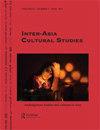从基督教的角度审视香港的冷战和解
IF 0.4
4区 社会学
Q4 ANTHROPOLOGY
引用次数: 0
摘要
摘要本文探讨了英国圣公会香港主教Ronald Owen Hall在20世纪50年代对香港冷战解决方案的批评。通过研究他的布道和著作,并将其与香港政府和殖民地总督亚历山大·格兰瑟姆(Alexander Grantham)的声明进行对话,本书重建了一个道德上的对应物,以对抗一个社会政治项目,该项目将香港定位为一个经济城市和“东方柏林”——一个位于共产主义中国家门口的资本主义“自由”飞地。格兰瑟姆和他的政府将该市的华人人口视为资本、劳动力或安全威胁的来源。当地居民,包括那些最近从中国大陆越境的人,与其说是公民,不如说是工业发展的贡献者,或者是共产主义威胁的潜在燃料。另一方面,霍尔认为共产主义与其说是对殖民地的威胁,不如说是社会无力为穷人和弱者提供服务的标志。他赞扬他的信徒拥抱中国的国家,而不是在一个原子化的、逐利的社会中苦苦挣扎。在殖民国家为香港创造的社会背景下,霍尔提供了一种超越冷战二元对立、资本主义价值观和基于本土基督教信仰的民族国家逻辑的另类视野。关键词:罗纳德·欧文·霍尔亚历山大·格兰瑟姆基督教道德批判冷战共产主义国家特指1本文用“共产主义”指代个人信奉的理想,用“共产主义”指代实际的共产党成员,尤其是中国共产党的变体。这种区别很重要,因为并非所有信奉共产主义信条的人都是共产党成员。引用原文和遵守语法惯例的除外在这期见韩寒和成龙整个二十世纪,香港的精英华人一直与英国统治者密切合作,从而支持了殖民权力。合作采取了社会服务和教育等制度形式,但正如罗永生(Citation2009)强调的那样,它也进入了文化表达和国家认同。劳强调,与殖民势力串通并不是对立的,反而会让合作者的中国民族主义情绪有所抬头。霍尔显然不是华裔,但他监管的学校和慈善组织为这种合作做出了贡献。这篇文章回应了劳的观点,超越了对殖民统治的严格政治审视,并认为这位神职人员对国家的思考补充并使劳对殖民主义动态和中国人身份认同的探究复杂化事实上,正如Alan Smart (citation2006,3)令人信服地论证的那样,香港政府将寮屋火灾的受害者安置在公共建造的公寓中的一个关键动机——在殖民宣传中被称为国家的慈善——是为了对抗北京和广州对他们困境的干预犹太人与邪恶的金钱之间的联系在欧洲社会,无论是基督教社会还是世俗社会,都是一个长期的反犹比喻,霍尔也不能幸免于其影响就像20世纪50年代访问中国的任何外国政要一样,霍尔的旅行是由中国政府策划的,覆盖了多个地点,目的是让客人对“新中国”有一个粗略但良好的印象。霍尔的访问从1956年5月30日至6月24日持续了不到一个月,访问了六个城市。霍尔的同事,英国圣公会高级神职人员休利特·约翰逊(1874-1966),坎特伯雷的院长,也受到了类似的待遇。有关霍尔访问的详细行程,见吴(Citation2017, 146-147)。本文所描述的工作得到了中国香港特别行政区研究资助局的资助(项目编号:香港理工大学15602321)。投稿人备注崔志文,香港理工大学副教授。作为一名训练有素的历史学家,他对中国革命政治、激进右翼意识形态和中国与亚洲的关系感兴趣。他是《中国的保守革命:对新秩序的追求,1927-1949》(剑桥大学,2018年)的作者,并与Tansen Sen合著了《超越泛亚主义:连接中国和亚洲,1840 - 1960》。他目前正在研究“新中国”是如何激励来自英国及其亚洲帝国的知识分子和活动人士想象一个超越冷战二元对立的非殖民世界的。本文章由计算机程序翻译,如有差异,请以英文原文为准。
Interrogating Hong Kong’s Cold War settlement: a Christian perspective
ABSTRACTThis article explores Ronald Owen Hall, the Anglican bishop of Hong Kong, as an unlikely critic of the city’s Cold War settlement in the 1950s. By examining his sermons and writings and putting them into dialogue with pronouncements of the Hong Kong government and the colonial governor Alexander Grantham, it reconstructs a moral counterpoint to a sociopolitical project that pitched the colony as an economic city and as the “Berlin of the East”—an enclave of capitalist “freedom” on the doorstep of Communist China. Grantham and his administration saw the city’s Chinese population as a source of capital, labor, or security threat. Local residents, including those who recently crossed the border from mainland China, were not so much citizens as either contributors to industrial development or potential fuel for Communist menace. Hall, on the other hand, saw communism as less a threat to the colony than a sign of the society’s inability to provide for the poor and the weak. He extolled his flock to embrace Chinese nationhood instead of languishing in an atomized, profit-pursuing society. Set against the social context the colonial state created for Hong Kong, Hall offered an alternative vision that transcended Cold War binaries, capitalist values, and the nation-state logic based on his locally-embedded Christian faith.KEYWORDS: Ronald Owen HallAlexander granthamChristianityMoral criticismCold warCommunismNationhood Special termsTableDownload CSVDisplay TableNotes1 This article uses “communism” to refer to ideals that individuals embraced and “Communist” to identify members of actual Communist parties, particularly the Chinese variant. This distinction is important as not all individuals who embraced communist tenets were members of Communist parties. Exceptions are made for original texts cited and in observance of grammatical conventions.2 See Hon and Chan in this issue.3 Elite Chinese in Hong Kong had throughout the twentieth-century worked closely with British rulers, thus buttressing colonial power. Collaboration took institutional forms such as social services and education, but it also, Law Wing Sang (Citation2009) stresses, found its way into cultural expressions and national identities. Law stresses that complicity with colonial power was not antithetical but could rather inform collaborators’ Chinese nationalism. Hall was obviously not ethnic Chinese but the schools and philanthropic organizations he oversaw contributed to this type of collaboration. This article echoes Law in moving beyond strictly political examination of colonial rule and submits that the cleric’s musings on the nation complement and complicate Law’s inquiry into the dynamics of colonialism and Chinese identities.4 Indeed, as Alan Smart (Citation2006, 3) convincingly argues, one critical motivation of the Hong Kong government to resettle victims of squatter fires in publicly built apartments—celebrated in colonial propaganda as state benevolence—was to counter interventions by Beijing and Guangzhou in response to their plight.5 The association between Jews and the evil of money has been a longstanding antisemitic trope in European societies, both Christian and secular, and Hall was not immune to its influence.6 Like any foreign dignitary visiting the People’s Republic in the 1950s, Hall’s tour was curated by the Chinese state, covered multiple locations, and aimed to impart on the guest a cursory but favorable impression of “New China.” Hall’s visit lasted for less than one month from 30 May to 24 June 1956, covering six cities. Hall’s fellow senior Anglican cleric Hewlett Johnson (1874–1966), who was the Dean of Canterbury, received similar treatment. For a detailed itinerary of Hall’s visit, see Wu (Citation2017, 146–147).Additional informationFundingThe work described in this article was supported by a grant from the Research Grants Council of the Hong Kong Special Administrative Region, China (Project no. PolyU 15602321).Notes on contributorsBrian TsuiBrian Tsui is Associate Professor at The Hong Kong Polytechnic University. A historian by training, he is interested in Chinese revolutionary politics, ideologies of the radical right and China’s inter-Asia relations. He is the author of China’s Conservative Revolution: The Quest for a New Order, 1927–1949 (Cambridge, 2018) and edited, with Tansen Sen, Beyond Pan-Asianism: Connecting China and Asia, 1840s–1960s. He is currently studying how “New China” inspired intellectuals and activists from Britain and its empire in Asia to imagine a decolonial world beyond Cold War dichotomies.
求助全文
通过发布文献求助,成功后即可免费获取论文全文。
去求助
来源期刊

Inter-Asia Cultural Studies
Multiple-
CiteScore
0.90
自引率
20.00%
发文量
22
期刊介绍:
The cultural question is among the most important yet difficult subjects facing inter-Asia today. Throughout the 20th century, worldwide competition over capital, colonial history, and the Cold War has jeopardized interactions among cultures. Globalization of technology, regionalization of economy and the end of the Cold War have opened up a unique opportunity for cultural exchanges to take place. In response to global cultural changes, cultural studies has emerged internationally as an energetic field of scholarship. Inter-Asia Cultural Studies gives a long overdue voice, throughout the global intellectual community, to those concerned with inter-Asia processes.
 求助内容:
求助内容: 应助结果提醒方式:
应助结果提醒方式:


